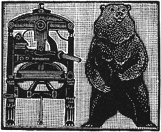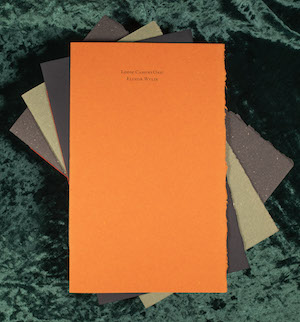| |
||||||||
Books in Print

Wood engraving by Colin Paynton
(from The Chimes, 1985)
Weathers:
A Selection of Thomas Hardy’s Poems
October 2025
Loose Canons Two:
E A Robinson: Ben Jonson Entertains a Man from Stratford & Other Poems
February 2025
Loose Canons Three:
Edward Thomas: The Child on the Cliffs
April 2025
Loose Canons Four:
Merrill Moore: Blue & Yellow Evening at Ostend
October 2025
Pastoral Elegies
Thomas Gray’s
Elegy written in
a country churchyard
& Oliver Goldsmith’s
The Deserted Village
Spring 2024
|
Click on the pamphlet covers above |
Loose Canons
An ongoing series of pamphlets celebrating and reintroducing poets and poems unfairly neglected or forgotten
The first two issues of Loose Canons appeared in February 2025, devoted to the American poets Elinor Wylie and E A Robinson. A third issue, offering a selection of poems by Edward Thomas (1878-1917), was published in April. As will be the case with later additions to the series, each of these three issues is intended to give a concise overview of the style and concerns of the poet in question. All the pamphlets are hand-set in various types from the best editions of the texts, and each offers a brief biographical note with other information as necessary. They will be sewn into a variety of cover papers – handmade, printed, or decorated in some way – and will be of a uniform size.
Please click on the links at left for detailed information on each title in the series.
The Loose Canons series will continue intermittently, but dependably. We intend them to provide a mix of writers in English from England, Canada, and America, and we may possibly introduce some translations from other languages as the series gather strength. Two further titles are in preparation.
![]()
Some Comments from a Reader
I love the Loose Canons pamphlets. They are very finely printed indeed and look particularly handsome in their textured paper covers. Although there are elements in common to make them feel part of the same series, I like how each has a distinct style inside, which I’m sure will prove to be appropriate to the poems. I enjoy poetry, but I am not terribly adventurous, so I am very happy to be introduced to a curated selection from some new-to-me poets, and look forward to the continuation of this series in the future.
James Barker
